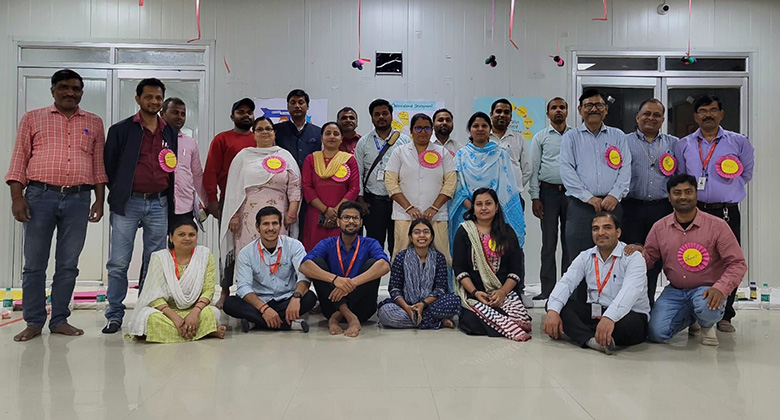
Equitable healthcare isn't just a moral duty; it's a basic right every human deserves. Regardless of the socio-economic and cultural background, everyone should have access to quality healthcare. It is about more than just treatment; it is about tackling the root causes of health disparities like poverty and discrimination. Making healthcare affordable, reachable, and culturally sensitive is key. When everyone can access healthcare, we improve public health, reduce disparities, and strengthen communities.
Piramal School of Leadership’s School of Health is at the forefront of transforming public healthcare, collaborating with institutions to achieve Universal Health Coverage. Our strategy is simple yet powerful: we team up, diagnose gaps, create customized solutions, and implement them sustainably with a dedicated focus on inclusive strategies. At Saharsa District Hospital, in the Kosi region of Bihar, we are on a journey to enhance healthcare delivery, access, and patient satisfaction through Organizational Development (OD).
Our approach is straightforward, yet effective: we partner up, diagnose gaps across various functions of cadres and departments across the dimensions of people, process, systems and culture, and develop tailored solutions facilitating context-specific granular solutions for the desired impact, both sustainably and inclusively. We are working closely with district hospital authorities to strengthen their capabilities applying a systemic lens to complex problems, mapping the system dynamics and identifying ways in which the relationships between system components affect its functioning, and then align their intentions with actions for better results.

On the 21st of March 2024, the District Hospital (DH) witnessed a congregation of 35 health service providers from various departments including SNCU, Labor Room, Blood Bank, OPD, Laboratory, NRC, Pharmacy, General Admin, Dialysis, and NCD. The goal? identifying strengths, tackling challenges, and enhancing efficiency, accessibility, and quality of care.
Each participant in the workshop shared a commitment to elevating service delivery standards. Interacting with the different health cadres was an enriching and learning experience as we discussed, ideated, elaborated, and negotiated innovative approaches to strengthen service delivery for patients – with Sewa Bhaaw. The workshop served as a springboard for outlining plans and forging next-step pathways to strengthen OD practices at the District Hospital Saharsa.

However, the journey towards holistic healthcare in Saharsa is not without its hurdles. Challenges such as ensuring a robust oxygen supply mechanism, infection prevention, enhancing departmental coordination, improving follow-up practices, infections, and safeguarding the safety and privacy of pregnant mothers in the Labor Room emerged as key focus areas. Weakly defined job roles leading to lack of role clarity across cadres, felt need of a strengthened metrics to measure productivity and contribution leading to ineffective review systems, need of a clear career progression, unstructured on-boarding process are other such impending challenges affecting efficacy and efficiency.
Yet, these challenges are not insurmountable. They serve as catalysts for innovation and systemic change. The workshop was a starting point for addressing these challenges and strengthening OD practices to improve the quality of care for patients. Commitments from the colleagues at SNCU were commendable. "We have saved lives of newborns of even 800 gms and…we will make all attempts possible to ensure that no weak newborn dies.” This reminded me of Robert Frost lines from the poem "Stopping by Woods on a Snowy Evening."
"... But I have promises to keep,
And miles to go before I sleep,
And miles to go before I sleep”
TAGS
SHARE





